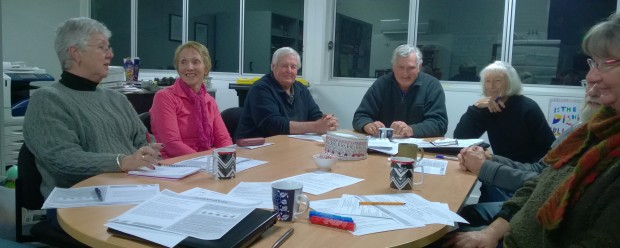It’s reporting time for the CLEA project, a 3 year Victorian Landcare Council project funded by the Natural Resources Conservation League and the VLC. The task is to find ways to support peer learning and mentoring between grassroots environment groups, specifically around what it takes to organise community action, collaborate with partners, and influence decision makers. The social knowledge in Landcare drives its contribution and its evolution in communities.
At the end of Year 2, the NRCL asked us “to reflect on what your group has learnt in regard to building capacity” and “any changes you have made/will make to the project as a result”. Hmmm – now that’s a good invitation! Here are three lessons from the year.
Lesson #1. Landcare Network Committees of Management need on-going support to become nodes of peer learning
CLEA’s strategy has been to develop CoMs as nodes of peer learning within a network of Landcare peers across the State. Progress is slow, because it is fitted in around short-term business, and the sometimes irregular meetings of CoMs. Even when there is strong commitment to addressing a Question Without Easy Answers, Coordinators still need discussion with CLEA to talk about what has happened and what they need to do next. They need support and a nudge to keep moving.
Mid Loddon Landcare Network Committee of Management
Lesson #2. Capacity building around organising, collaborating and influencing is constrained by: a) the old imaginary of Landcare as planting trees; b) weak institutional support for social knowledge in natural resource management; and c) the isolation of the social innovators in Landcare
See here for more on these constraints. The implication is that it’s absolutely critical to connect the social innovators in Landcare – the people who are remaking Landcare, small piece by small piece, in the face of long-term shifts in the social and political context.
Lesson #3. Use what’s there, don’t build from scratch
In Year 1, CLEA decided to focus on Landcare Network CoMs as a place for peer-to-peer learning, because they are peers talking to each other, regularly. No need to invent new meetings – just use what’s there. This year, research with VLC delegates showed that there are people already connecting those who want support and expertise with those who can give it. We called them Network Builders. We need to cooperate across levels of governance to support those Network Builders. What they will do is move knowledge and make support available, when and where it’s needed.
Year 2 has also brought the painful realisation that not many people read this blog (!), and that it is smarter to find ways to use established communication channels than to set up a new one and try to pull people to it.

